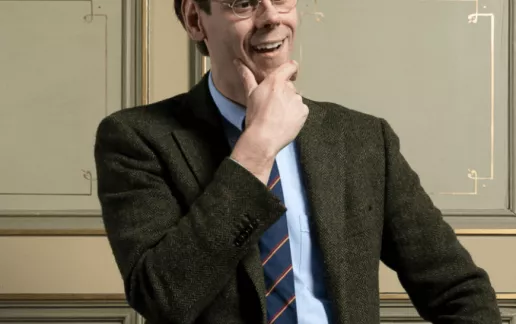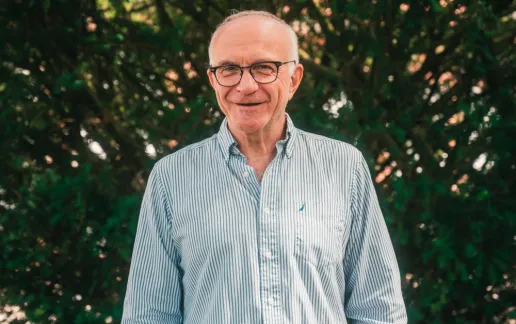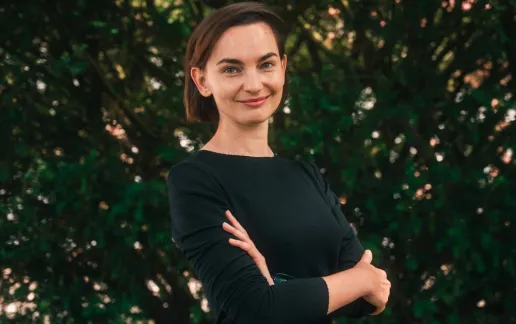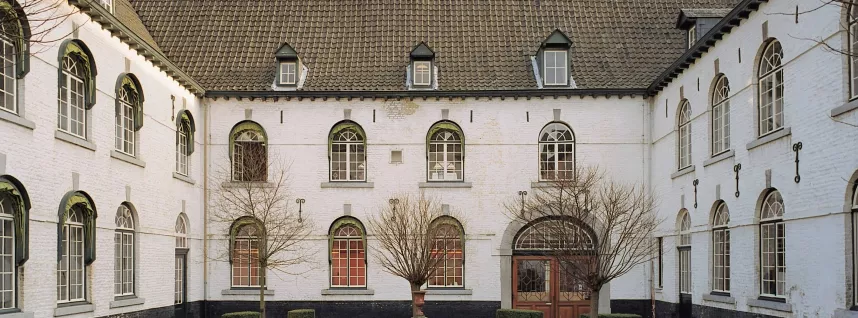The development of Liberal Arts and Sciences in the Netherlands: The case of University College Maastricht
This webinar is a part of an Innovative Universities Global Webinar Series.
UCM is Open Curriculum aims to nurture lifelong, independent, and critical learning, supported by academic advising and state-of-the-art educational facilities. The program results in a Bachelor of Arts (BA) or Bachelor of Science (BSc) degree. Students acquire high-level intellectual skills and social issues. The overriding goal of such a curriculum is to nurture a life-long attitude of independent, critical, and engaged learning. UCM uses Problem-Based Learning (PBL) as its main method of instruction which is highly conducive to achieving a small-scale, intensive, and international learning community. The students take center stage under the tutor's supervision which makes this educational concept unique and intense, thereby fostering a genuine academic community.
UCM offers a Liberal Arts and Sciences bachelor’s program that provides carefully selected students with an introduction to a wide range of academic disciplines and in-depth knowledge of a specific discipline or a specific combination of disciplines.
At the College, students acquire high-level intellectual skills and learn how to apply scientific knowledge to the articulation and solution of academic and social issues. The program comprises 180 ECTS (6 semesters). After successful completion of the program students receive a Bachelor of Arts (BA) or a Bachelor of Science (BSc) degree, depending on the composition of their individual program.
Three distinguishing features of the College are its small-scale learning environment, its close-knit academic community and an emphasis on broad yet rigorous academic development realized through attention for the individual academic and social growth of students. This is achieved by placing the student at the center of the program, but also by requiring students to take full responsibility for their own education. This means that students are expected to work hard and consistently, and to realize the highest possible fraction of their potential, both for their own benefit and that of society at large.
The curriculum of UCM belongs to a specific tradition within Liberal Arts and Sciences education, viz. the Open Curriculum.1 The overriding goal of such a curriculum is to nurture a life-long attitude of independent, critical and engaged learning. This is fostered by a learning environment supported by intensive academic advising and optimal educational facilities.
UCM uses Problem-Based Learning (PBL) as its main method of instruction.2 PBL is, by its very nature, highly conducive to achieving a small-scale, intensive and international learning community. Traditional teaching is organized from the perspective of the teacher, who provides instruction to students (often through lectures). In Problem-Based Learning the students take center stage; in small groups with a maximum of twelve participants, students discuss scientific and academic problems prepared by academics, under supervision of a tutor.
The same philosophy is apparent in the methods of assessment and feedback used. Students’ performance in courses, academic skill trainings and projects is continuously evaluated through papers, exams, (group) assignments, presentations, and class participation. This educational concept firmly anchors intensive interaction within the program, both among students and between students and teachers, thereby fostering a genuine academic community.
The speakers will introduce the Liberal Arts and Sciences approach to undergraduate education and its profound effect on Dutch higher education. Not only has it spawned a number of successful university programs, but it has influenced university education generally.
One of the earliest examples of a Liberal Arts and Sciences Program is University College Maastricht. Established in 2002, it has several features that made it unusual for its time, but that have now become more mainstream.
This presentation will present this program, explaining how it was a response to certain perceived problems in higher education, and exploring its current and future place in the university landscape.
Publications:

- He conducts theoretical and philosophical research concerning the nature of Liberal education in the European context, as well as its social, political, and educational significance.
- He has held visiting positions at Yale University, Amherst College, and Sciences Po, and has worked for the Dutch Ministry of Education, Culture and Sciences.

- Between August 2019 and February 2022 responsible for all educational processes at the School of Advanced Studies (SAS, Siberia, 4-year program, 200 students and MA in Experimental Higher Education); both programs are English-taught, public, liberal arts and honors/selective colleges.


